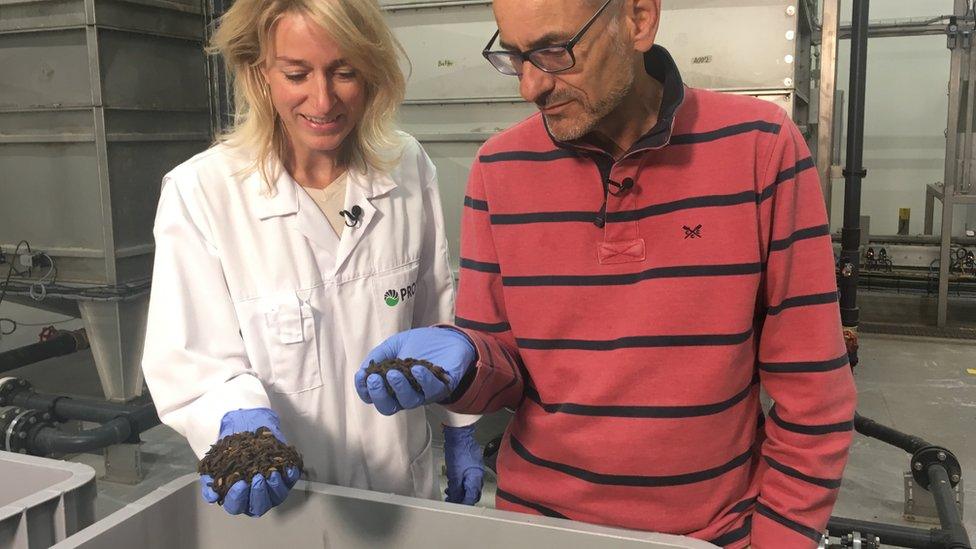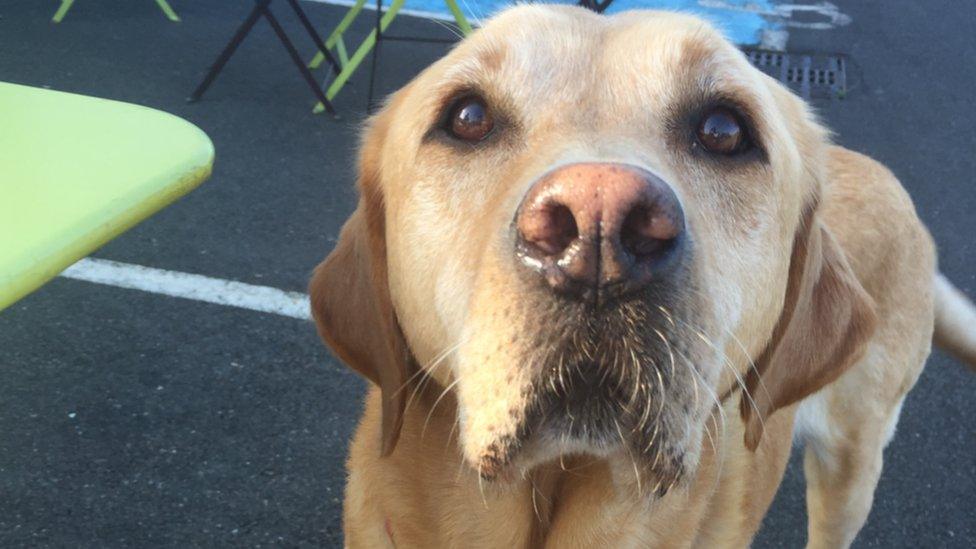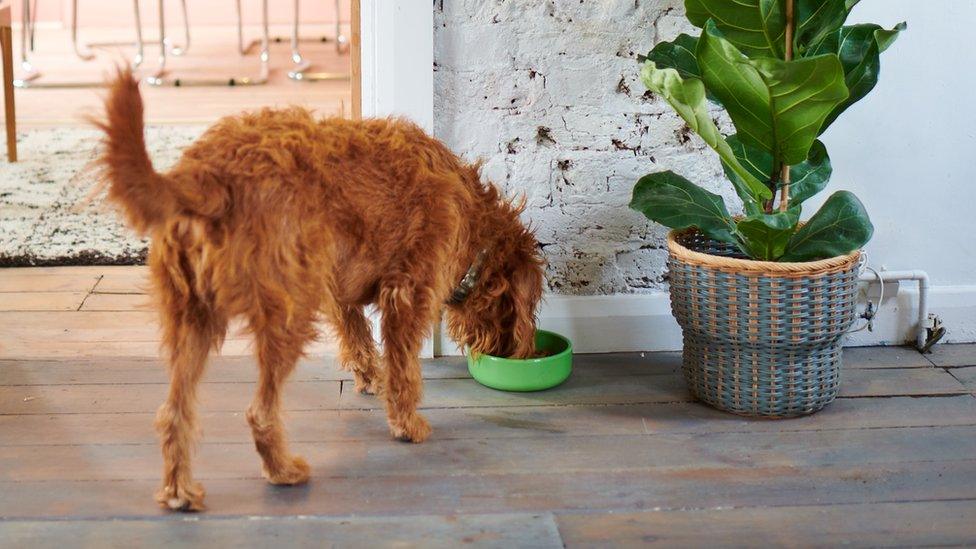Insect-based food 'better for pets than top steak'
- Published
- comments
Inside a Dutch insect farm
Pet owners are being urged by vets to feed their dogs and cats on a diet rich in insects.
The British Veterinary Association (BVA) says some insect-based foods may be better for pets than prime steak.
The vets expect resistance from some pet lovers, but they say surveys suggest many would accept insect-based food.
Advocates say insect protein provides a more environmentally-friendly alternative to traditional pet food.
Simon Doherty, the BVA president, told BBC News: “There’s a really exciting future for the use of insect protein for companion animals.
“It’s a fantastic opportunity - looking at insects to provide alternative sources of some of the nutrient ingredients we use in pet food diets.”
He said it was essential to find food sources that did not deplete the soil or water, or fuel climate change, and added that it was better for meat to be fed to people than pets.
More stories like this:
Insects are widely used in fish farms and poultry farms, and some UK firms are already selling pet food with up to 40% insect protein.
Mr Doherty said insect protein might particularly appeal to vegetarian owners of cats, because cats need an essential amino acid called taurine - which is found in meat, fish and insects.
“You’d still be killing insects but some vegetarians might find that more palatable than killing cows or chickens,” he said.
What are the benefits of protein from insects?
Farmed insect protein is typically raised on human food waste. Protix, a Dutch firm which claims to have the world’s biggest insect farm, estimates that compared with beef, insect-based foods use 2% of the land and 4% of the water per kg of protein.

Protix farms insects for food
The firm says 1 tonne of insects can be grown on 20 sq m of space in 14 days.
The insects need no fertiliser or pesticides and produce very low emissions.
The larvae's excretions produce nutritious fertiliser that is not contaminated with plastic fragments, because the grubs nibble around bits of plastic (although they still ingest any microplastics).
There could be an economic benefit, too. Putting insects into pet food will allow supplies of offal – innards like heart and lungs - to be exported to East Asia, where the BVA says there is strong demand.
Protix founder Kees Aarts said: “Round the world we are heating up the atmosphere and using up the land.
“But we have also to feed a growing population in need of protein. We have to do something differently – and insects are part of the solution.”
Pets are estimated to be consuming up to 20% of all meat globally.
The BVA believes the figure is lower, at around 12%.
Mr Doherty said many people now treated companion animals as members of the family.
“They would say that if they were able to have prime steak for themselves, why would they not provide it for their cats and dogs?
“Actually the danger is that a diet of top steak wouldn’t be nutritionally balanced. It’s much better to buy a balanced pet food, (whether or not it contains insects),” he said.
How expensive is insect-based food?
At the moment some insect-based food in the UK is more expensive than luxury brands of pet food, and up to four times dearer than budget brands.
One manufacturer, Yora, said this was because insect farms were costly to design and build, technology was still young, and competition and production volumes were low.
The firm’s spokesman, Will Bisset, claimed the food he designed was good for the owner’s conscience.
“If you’re a vegetarian like me, you have to wrestle with your own principles and the knowledge that dogs and cats are actually supposed to eat a diet based on meat," he said.
“Feeding my dog with protein based on insects seem to bridge the gap between nutrition and vegetarianism.”
He said the larvae were grown under strict animal welfare standards. They were chilled into a hibernation state before being minced in a fraction of a second.
Do dogs and cats like insect-based food?
During a brief (and unscientific) visit to a park we found plenty of dogs prepared to wolf down the insect-based food.

Skwiff was a big fan of insect-based food
Certainly, insect dog treats were judged satisfactory by Skwiff, the BBC Science Unit Labrador.
Whether owners will be as eager to swallow the price is a different question.
Follow Roger on Twitter, external
- Published10 January 2019
